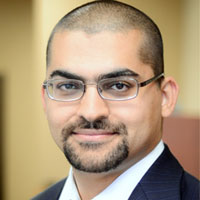Hair Transplants Popular among Common Men, Not only Celebrities
Hair transplant treatment recently gained an overwhelming coverage in
press thanks to the publicity created by famous striker Wayne Rooney.
When Rooney came out public sporting the new hair style, it was easy for
the public to get convinced of the success of the procedure. “If Rooney
has done that, it’s surely the best” is the response from many who were
not sure of the outcome of such a costlier procedure.
It’s true
that celebrities have contributed to the popularity of cosmetic hair
procedures like Follicular Unit Extraction (FUE). However, the truth is
that thousands of ordinary men undergo hair transplant procedures every
year, without anyone ever knowing, says Hair Restoration Blackrock
(HRBR), a leading hair transplant clinic which also has treated
celebrities like Louis Walsh and James Nesbitt.
The clinic
recently completed a study on their hair transplant patients and
categorized them based on their professional status. The study included
over 2000 ordinary men, as well as a few well-known faces.
According
to the study, top ten hair transplant patients by profession include
business men; people from entertainment industry; professionals
including accountants, engineers, solicitors and barristers; men in
retirement; middle managers; IT specialists; sales professionals;
tradesmen from different industries; teachers and lecturers; and
students.
The list points out to an interesting fact: hair
transplant is not confined to celebrities. Rather, it has grown in
popularity like any other treatment. This, according to HRBR, is the
result of increased consciousness developed by the modern society,
mainly driven by their need to “look better to feel better.” Whether you
are a salesperson or a college tutor, you have all the rights to look
decent in front of your audience. Hair loss, once regarded as completely
incurable, is no more the same. Hair transplant surgeries like FUE have
proven success among millions of people across the world.
“Hair
loss is a great leveler. While it may be celebrities who make the
headlines, our average patients are men of all ages and from all walks
of life. There is no doubt that when celebrities like Wayne Rooney and
Louis Walsh go public, it helps de-stigmatize hair restoration surgery,
which is something we greatly welcome. As well as people from the
entertainment industry and professionals, here at HRBR in both our
London and Dublin clinics, we see a wide variety of men, which includes
everyone from politicians and plumbers to postmen,” said Dr. Maurice
Collins, medical director and founder of HRBR.
While the ideal age for
hair transplant is 40 and above, Dr. Collins also sees that a greater
number of younger patients are opting for hair transplant procedure.
This, according to him, indicates an increased consciousness among young
generation to look better and younger.
HairFear
Frequently asked questions about hair transplant procedures
How much does a hair transplant cost?
Hair transplants can vary in price based off of the area in the world that you are interested in getting a hair transplant as well as the size of the area where you may need a hair transplant. Experienced doctors in the United States will often charge some of the highest prices for a hair transplant worldwide and this is why so many travelers make the move to other parts the world like Turkey, India, Thailand, Mexico...etc for their hair transplants.
Will a hair transplant hurt?
Although hair transplants may look like a particularly
unpleasant or painful experience is actually very little discomfort involved
with the surgery itself. Hair transplants are always done under an anesthetic so there's absolutely zero pain during the treatment itself. Many people actually relate the process as being very similar to going to the dentist for filling or root canal. Mild pain can persist over the course of postop treatment but he generally just resumes for a few days.
Who can deliver the best surgery?
It's usually best to consider working with surgeons who have and IAHRS certification or international alliance of hair restoration surgeons recognition. IAHRS can often deliver recommendations for the best surgeons in each particular area.
Is this scarring noticeable?
Any type of hair transplant will require the use of incisions throughout the scalp. There can also sometimes be a small scar from the donor area towards the back of the scalp. Asking to look at photos of the surgeon's previous work will help you to see roughly how bad the scarring could be. In most cases an experienced professional can limit the look of scarring and noticeable marks from the surgery.
How long does it take for the hair to grow?
In most cases hair growth will start within eight months and you can start to see a full effect from the hair transplant after a full year. The initial signs of growth can usually start between 3 to 4 months after the surgery.
Are the results permanent?
The hair follicles that are transplanted are generally the ones which are genetically resistant against the symptoms of baldness. As long as you receive hair loss treatment later in your life after the symptoms of balding have started to subside, you can have a better chance at permanent results.
While everyone know you've had surgery?
If you want to limit the chance that people may find out about your surgery it's important to give at least three weeks of healing as the surgical area will be affected and red just after surgery. After around a month of healing it can look far less noticeable. You could consider wearing a hat while time passes or opting for some extra time off if possible.
How long should I rest after surgery?
It's recommended to rest for at least a few days after surgery so that your body can recover. Trenton to over exert yourself and limit sexual activity, running in the gym for around 10 days after surgery.
Is it possible to lose more hair as a result of surgery?
There is always a chance of shock loss which happens when the hair is weak and miniaturizing after the surgery. As long as the surgeon is choosing the correct hair follicles and performing the surgery well it's possible to minimize the chance of this happening however.
Will I need another hair transplant?
The need for another transplant really depends on the individual. With a solid foundation surgery and working to potentially bolster results with drug therapy, you can improve the stability of the hair that was transplanted as well as prevent further loss. Getting a hair transplant early
on in your 20s or early on in life could lead to needing long-term transplants as hair loss can be progressive.







